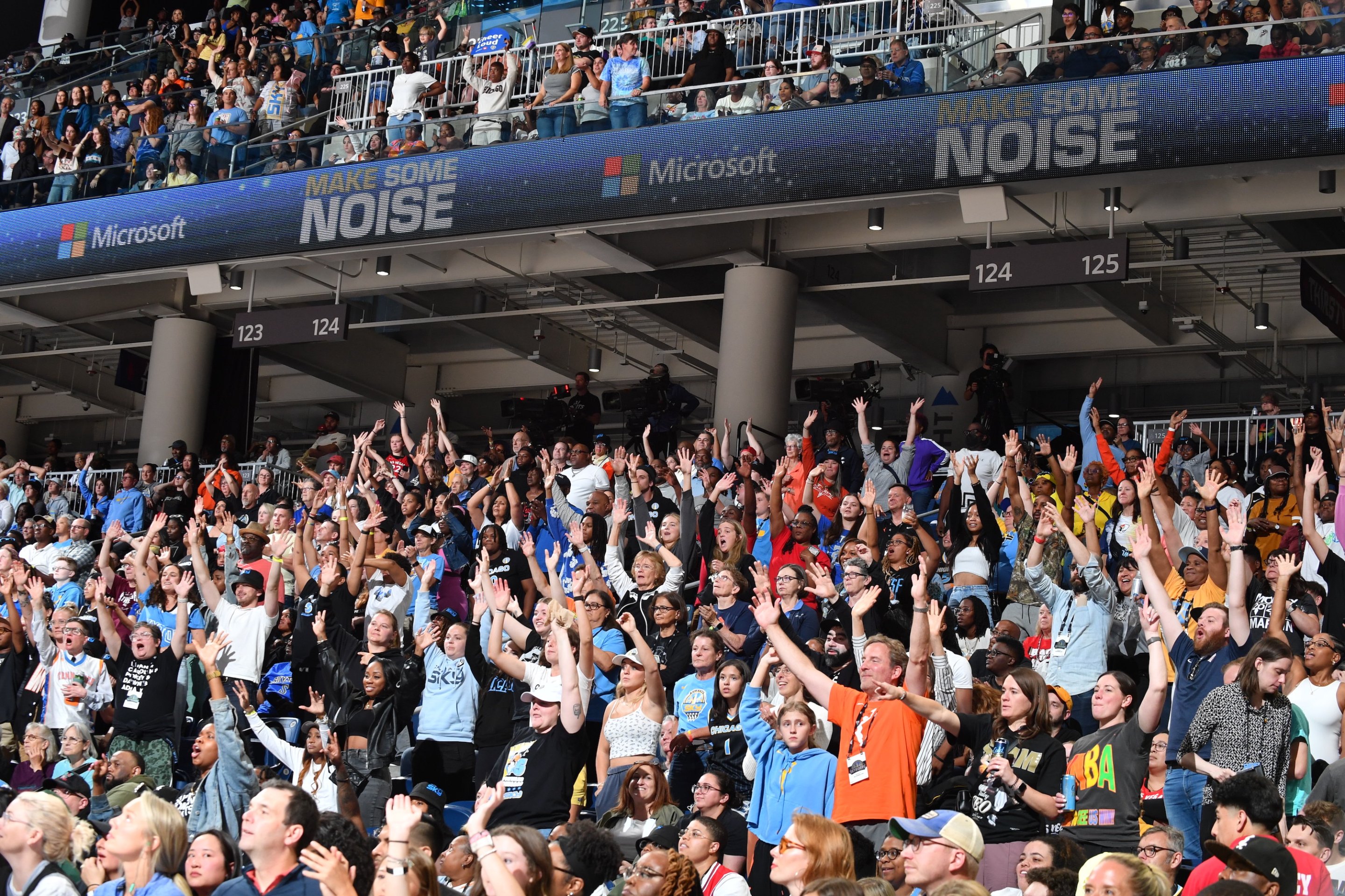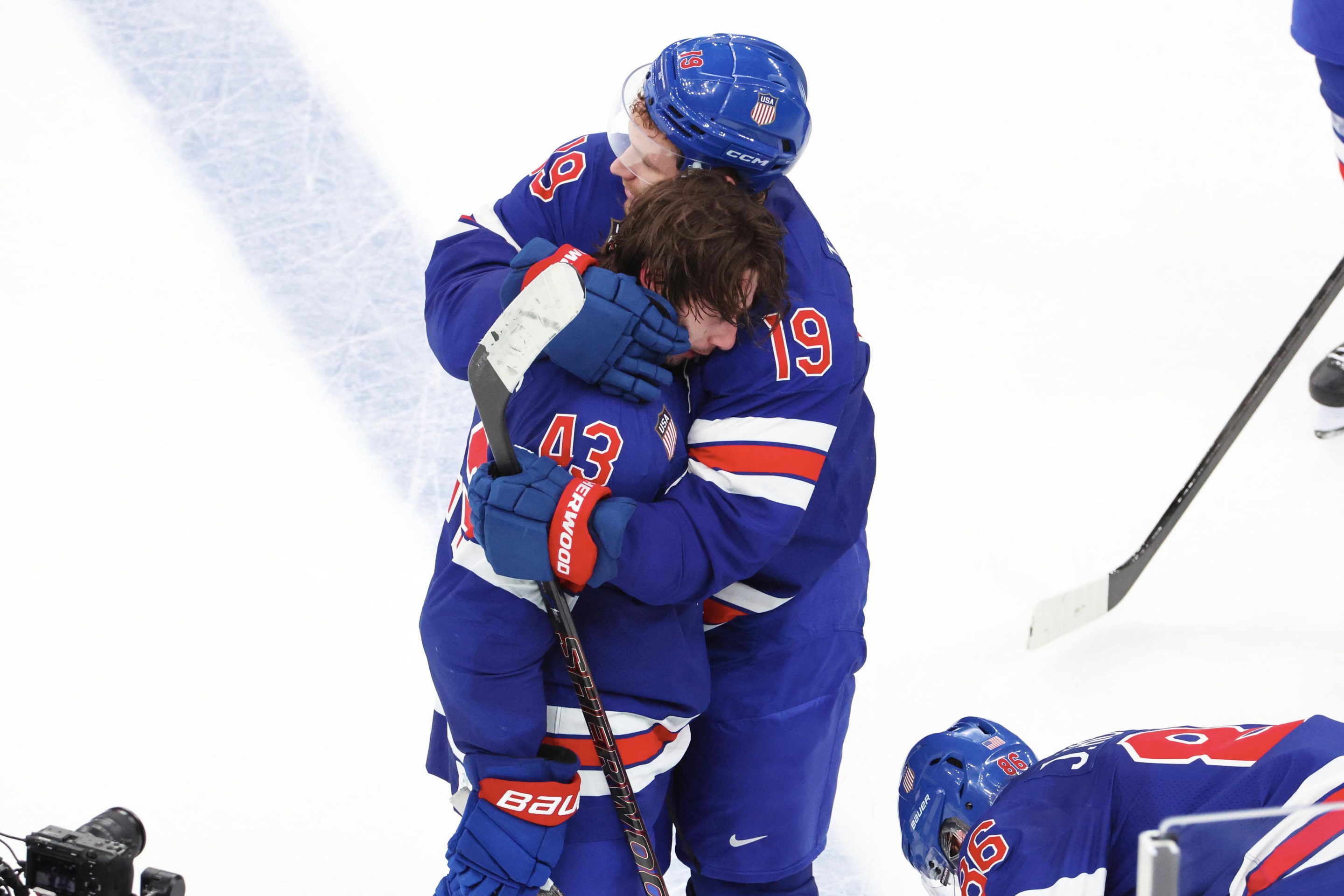Two weeks ago, Indiana Fever guard Lexie Hull was smiling in a postgame presser, fresh off the best game of her career. Lexie’s twin sister, Lacie, and their grandmother had been sitting courtside, and a reporter wanted to know whether the two would return as a good luck charm. “Are you going to get those relatives season tickets now?” he asked. As Hull began to answer, a wry Caitlin Clark interjected: “Those are pretty expensive. It’s like our entire salary to get those.” She had on a distinctly Midwestern facial expression: Her eyes got big, her eyebrows and shoulders went up. The room laughed and Clark chuckled back. “I’m not kidding.”
While WNBA season tickets don’t cost Caitlin Clark’s entire salary, the increase in ticket prices around the league has resembled her passes: too sudden and daring to comprehend in real time, probably obvious in retrospect. After the Liberty sent out ticket renewal information earlier this week, more than 100 Liberty season ticket holders compiled their renewal quotes in a Google spreadsheet to assess the damage. The numbers are all over the place, but they are all up. Several Sky season ticket holders told the Chicago Sun-Times’ Annie Costabile that the team had quoted them increases of more than 200 percent. Costabile’s article included one especially severe hike: A pair of courtside seats purchased at $8,960 for the 2024 season will now cost $19,712.
One subject a WNBA fan learns quickly, with help from internet commenters and talk radio hosts, is economics. Players aren’t paid well, we’re told, because supply and demand determine market prices, which in turn determine revenue. The WNBA, we’re reminded, does not turn a profit. Profit, by the way, is revenue minus costs. The thinking goes that WNBA fans are brainless feminists, unwilling to accept the basic laws of capital.
You’d be surprised how amenable women’s basketball fans can be to economics. The 2021 investigation into the NCAA’s management of the women’s tournament infamously concluded that the NCAA is straight-up bad at making money off the sport. I am often struck by the savvy of random fans on Twitter, who dream up all kinds of smart business ideas while actual WNBA executives can’t be bothered. WNBA merch selection is still underwhelming. A couple of teams limit ticket supply: The Mystics have announced sellouts of all their home games but play in a 4,200-seat building. Tonight, the Fever face the Sky at a 10,000-seat arena in Chicago. The cheapest tickets on the secondary market are $150 per seat in the upper deck.
A favorite bar getting crowded, an indie band blowing up—these experiences aren't new. “I remember going to games when it was $25,” Liberty fan Kayla McGrail told The Cut in a recent article. McGrail said she and her girlfriend had gone to a game early in their relationship; it was the rare sports space where the two of them felt welcome. “Are they expensive now? Yes. Does it mean growth of the sport? Yes. So I’ll take it.”
No other kind of fan has been conditioned to draw a straight line between the cost of their ticket and Josh Hart’s quality of life. With its new multibillion-dollar television deal, the WNBA grows less reliant on gate receipts. This is just the reward for playing the growth game, for accepting that fans' passion and interest must be substantiated by breathless Angel Reese vs. Caitlin Clark is the MOST expensive WNBA ticket EVER 🤯 👏 infographics. Now that language gets turned back around on those who were always reluctant to measure success in those terms: It’s growth. Isn’t this what you wanted the whole time? By bringing season ticket prices closer to the numbers on the secondary market, teams may just be recapturing profits that already existed. Affordable options for fans and good pay for players are, and have always been, compatible. Affordable options for fans and wild ticket reselling practices are not.
The WNBA, partially owned by a bigger company, doesn't actually have to obey the laws of supply and demand. This was the rebuttal to the economics lessons: The league could be a loss leader, an affordable introduction to professional basketball for people who might not otherwise have the chance or means to see a game. WNBA games could break the rules in other ways. If fans wanted to make corny signs, if they wanted to cheer for both the home team and the visitors, if they wanted to boo or they didn't want to boo, that was all fine. As long as they had a good time.
So forgive me for feeling a little sad, even if I understand the math. My WNBA fandom doesn’t exist without the league’s affordability. Those memories begin at camp days on summer afternoons, my friends and I swimming in color-coordinated YMCA T-shirts. Getting to first encounter the sport like that—just women’s basketball as an entertainment product, shorn of any weird baggage— now seems like a miracle. Only later in life, long after I’d mentally enshrined Swin Cash and Ruth Riley, did I realize what some other people thought of the WNBA. “Would you rather your WNBA team win a championship or find $5 on the ground?” a boy in my middle school class asked me. I didn’t understand the joke. Maybe the $5, I thought; my WNBA team had already won three.
This summer, I’ve watched games at four WNBA arenas. The vibe at each one is a little different, as are the amenities: I preferred the long beer line in Chicago to whatever data privacy nightmare allowed me to purchase popcorn without interacting with a single human in Seattle. The camp day kid grew up. She writes about the WNBA now. Her fandom has mellowed out as it’s become her job. But the feeling of belonging to something so fun and distinct never goes away. It's still there on press row or up in the Demon Deck. It's one of the best feelings I have ever felt, and you shouldn't have to be rich to feel it.






